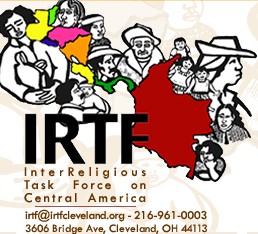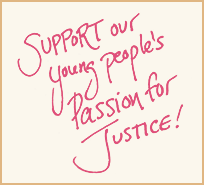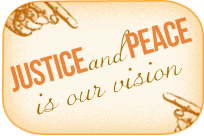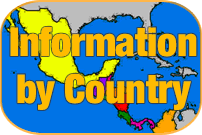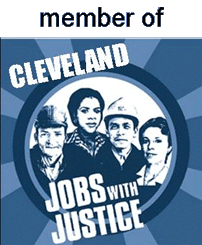Honduras

Honduras
Fact Sheet
Land and People:
- Honduras is bordered to the west by Guatemala, to the southwest by El Salvador, to the southeast by Nicaragua, to the south by the Pacific Ocean and to the north by the Gulf of Honduras and the Caribbean Sea.
- Honduras is the second-largest country in Central America (43,278 sq miles) with a population of 7.3 million people.
- Spanish is the official language but there are some dialects spoken by Amerindian. English is widely spoken in business.
- 90% of the population is mestizo, 7% is Amerindian, 2% is black and 1% is white.
- The majority is Roman Catholic (97%), just 3% is Protestant.
- The Literacy rate comes to approximately 76% (2003)
History:
- During the first millennium, Honduras was inhabited by the Maya. Columbus explored the country in 1502.
- Honduras, with four other Central American nations, declared its independence from Spain in 1821 to form a federation of Central American states.
- In 1838, Honduras left the federation and became independent. Political unrest rocked Honduras in the early 1900s, resulting in an occupation by U.S. Marines. Dictator Gen. Tiburcio Carias Andino established a strong government in 1932.
- In 1969, El Salvador invaded Honduras after Honduran landowners deported several thousand Salvadorans. Five thousand people ultimately died in what is called “the football war” because it broke out during a soccer game between the two countries. By threatening economic sanctions and military intervention, the Organization of American States (OAS) induced El Salvador to withdraw.
- After a decade of military rule, parliamentary democracy returned with the election of Roberto Suazo Córdova as president in 1982.
- However, Honduras faced severe economic problems and tensions along its border with Nicaragua. “Contra” rebels, waging a guerrilla war against the Sandinista regime in Nicaragua, used Honduras as a training and staging area. The U.S. also used Honduras for military exercises, and it built bases to train Honduran and Salvadoran troops.
- In 1997, Carlos Flores Facussé of the Liberal Party was elected president. He began to reform the economy and modernize the government.
- In Oct. 1998, Hurricane Mitch killed some 13,000 Hondurans, left 2 million homeless, and caused more than $5 billion in damage.
- In 2002, Ricardo Maduro became president, promising to lessen crime and corruption, but his hard-line efforts, growing increasingly more repressive, did not improve these problems.
- In 2006, a new president, Manuel Zelaya, also vowed to fight corruption and gang violence, but he promised to do so with a more humane approach.
- A free-trade agreement (CAFTA) with the U.S went into effect in April 2006.
Economy:
- Honduras is one of the poorest countries in the Americas, with a GDP of $20.21 billion and per capita at $2,800 a year (2005) and remains dependent on U.S. aid.
- The economy is based on agriculture; bananas and coffee are the most important exports.
- Honduras has rich forest resources and deposits of silver, lead, zinc, iron, gold, cadmium, antimony, and copper, but exploitation is hampered by inadequate road and rail systems, and the country remains underdeveloped.
- The economy has continued to grow slowly but the distribution of wealth remains very polarized with average wages remaining very low. Economic growth is roughly 5% a year, but many people remain below the poverty line.
- It is estimated that there are more than 1.2 million people who are unemployed. The rate of unemployment is 28%.
- In recent years, Honduras has faced inflation ( 9.2% ), and economic overdependence on coffee and bananas.
- The World Bank and the International Monetary Fund classified Honduras as one of the heavily indebted poor countries (Honduras external debt accounts for 82 per cent of GDP) eligible for debt relief, and this debt relief was given in 2005.
- Both the electricity services (ENEE) and land line telephone services (HONDUTEL) were run by government monopolies, with the ENEE receiving heavy subsidies from the government because of its chronic financial problems. HONDUTEL however is no longer a monopoly, the telecommunication sector having been opened after December 25, 2005; this was one of the requirements before approving the beginning of CAFTA (Free Trade Agreement with USA).
- There are price controls around the price of petrol, and other temporary price controls of basic commodities are often passed for short periods by the Congress.
- After years of declining against the US dollar the Lempira has stabilized at around 19 Lempiras per dollar.
- In 2005 Honduras signed the CAFTA. In December 2005, Honduras' main seaport Puerto Cortes was included in the U.S. Container Security Initiative.
Politics & Human Rights:

Politics of Honduras takes place in a framework of a presidential representative democratic republic, whereby the President of Honduras who is popularly elected for a four-year term is both head of state and head of government, and of a pluriform multi-party system. Executive power is exercised by the government. Legislative power is vested in both the government and the National Congress of Honduras. The party system is dominated by the conservative National Party of Honduras and the Liberal Party of Honduras.The Constitution provides for an independent judiciary; however, the judiciary is poorly staffed and equipped, often ineffective, and subject to corruption and political influence. The 1982 constitution of Honduras provides for a strong executive, a unicameral National Congress, and a judiciary appointed by the National Congress. The Government generally respected the human rights of its citizens; however, there were serious problems in some areas. Members of the police committed extrajudicial killings. Well-organized private and vigilante security forces were believed to have committed a number of arbitrary and summary executions. Human rights groups accused former security force officials and the business community of colluding to organize "death squads" to commit extrajudicial, summary, and arbitrary executions, particularly of youth. Security force personnel beat and otherwise abused detainees and other persons.
Prison conditions remained harsh, and detainees generally did not receive due process. There was considerable impunity for members of the economic, military, and official elite. A weak, under funded, and often corrupt judicial system contributed to human rights problems. Although the courts considered allegations of human rights violations or common crimes against armed forces personnel, and some cases went to trial, there were few, if any, convictions. While no senior government official, politician, bureaucrat, or member of the business elite was convicted of crimes, a number were under investigation during the year.
Other human rights problems included violence and discrimination against women, child prostitution, abuse of children, discrimination against indigenous people, and trafficking in persons.
The Government did not enforce effectively all labor laws. Many workers in the private sector were forced to work unpaid overtime. Child labor was a problem, particularly in rural areas, in the informal economy, and in some export agriculture, but generally not in the export-processing sector.

